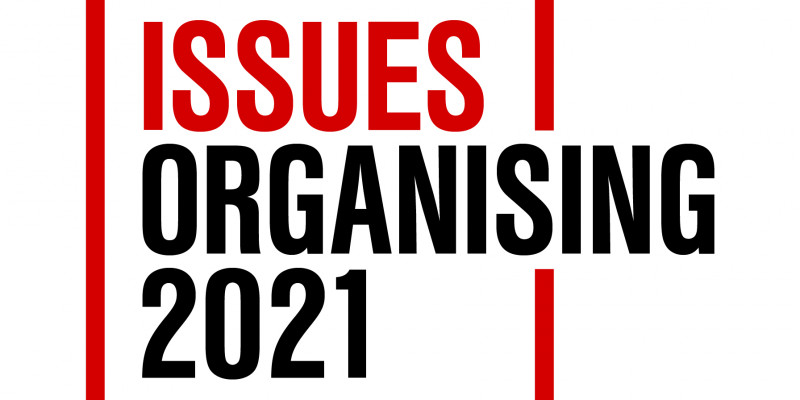
Issues and Organising seminar
PPTA activists converged on the Capital in August for two days of inspiration, motivation and collaboration
Hīkoia te Kōrero - walk the talk was the theme of the 2021 Issues and Organising seminar, which was held in August after being delayed due to COVID-19 restrictions.
We were delighted to have Mark Harcourt, Professor of Human Resource Development at the University of Waikato School of Management, able to join us. He has studied workplace happenings in some of New Zealand’s best-known organisations – turnover at the Bank of New Zealand, stress at the Reserve Bank, commitment at the Police and Fire Services, and occupational over-use syndrome at the Building Research Association of NZ.
Union default
Professor Harcourt has carried out significant research on collective employee representation, especially the union default. The idea is that instead of having to opt-in, workers have to opt-out. Professor Harcourt outlined the various benefits of the union default, not only for the individual but for the collective (being the union) and wider society. These benefits are emotional, physical, financial, and cultural.
A survey he and university colleagues conducted in 2019 found a majority of virtually every group studied in the survey favoured a union default. This included almost every ethnic group, across genders, all income groups except those earning more than $150,000, every educational group, almost all occupational groups (including managers), all groups by employment status (including employers). Sixty percent of managers supported union default, as did 62% of employers and 51% of self-employed people.
Professor Harcourt was informative, entertaining and motivating.
Changing nature of work
The afternoon panel on the changing nature of work was packed with quality presenters with a wide range of experience and knowledge. It was particularly pleasing to be able to have Yvonne Oldfield as part of the panel to talk on her PhD around precarious work on the global and national stage. Yvonne was joined by Stephen Blumenfield and Rebecca Downs from Victoria University of Wellington’s Centre for Labour Employment and Work, and Bill Rosenberg, an economist at the Council of Trade Unions (CTU) for more than 10 years and Senior Associate at Victoria University of Wellington’s Institute for Governance and Policy.
Stephen talked us through the current trends in employment contracts and Rebecca spoke about how aware students in her Future of Work paper were about the impacts of these changes and they had a real desire to make sure they got the most out of them. Change has characterised work throughout history and the panel highlighted how important the collective and unions have been in shaping that change. Yvonne reminded us that having moved from a harsh “master and servant” model predominated with high levels of sub-contracting, self-employment, home-based work, and insecure jobs through political, industrial and legal action, we need to be aware that any increase in precarious work, hidden through the idea of “choice and freedom”, could take us back closer to these models. Finally, Bill outlined how it’s hard to predict what it will look like but it is not pre-determined: we have choices and we can prepare for it, supporting people through change. The CTU maintains there are three key requirements for creating positive change: A capable state (active market labour policies, quality public services); employment laws and policies that ensure everyone shares in the benefits; and industrial policies to replace ‘old’ with ‘better’.
Topical issues and a quiz
Workshops focus on key areas such as supporting part-time teachers, changes to the NCEA, the judicial review of the Teaching Council’s decisions to raise practising certificate fees and replace triennial certification with annual certification, and the upcoming Collective Agreement negotiations.
Saturday evening saw a social quiz take place. There was a great turnout with eight teams of eight, spot prizes and an amazing quiz created by Michael Cabral-Tarry (Auckland Regional Chair). Master of Ceremonies Chris Abercrombie kept the laughter, groans and friendly competition flowing. PPTA staff members spread across teams challenged the specific detail required for some Collective Agreement questions but as we know the quiz master’s decision is final!
An Unconference session was held on the Sunday and again there was a wide variety of discussions held by members.
It’s always heartening to see the activism and passion at a grassroots level for teacher professional and industrial growth.
An important acknowledgement to National Office Personal Assistant Julie Elliott this year who singlehandedly organised all members, staff and guests in a very short space of time and dealt calmly with all the last-minute changes and requests.
